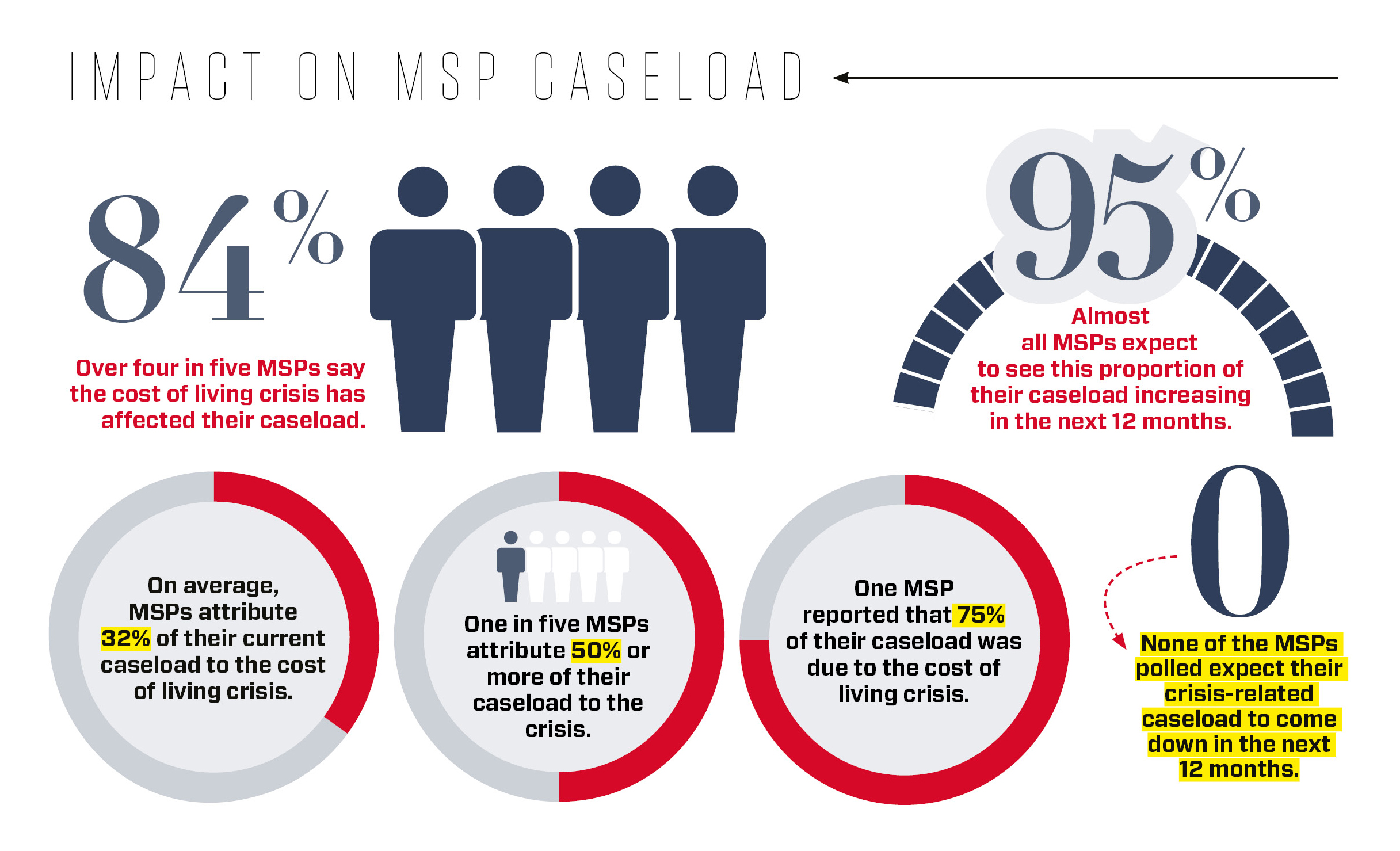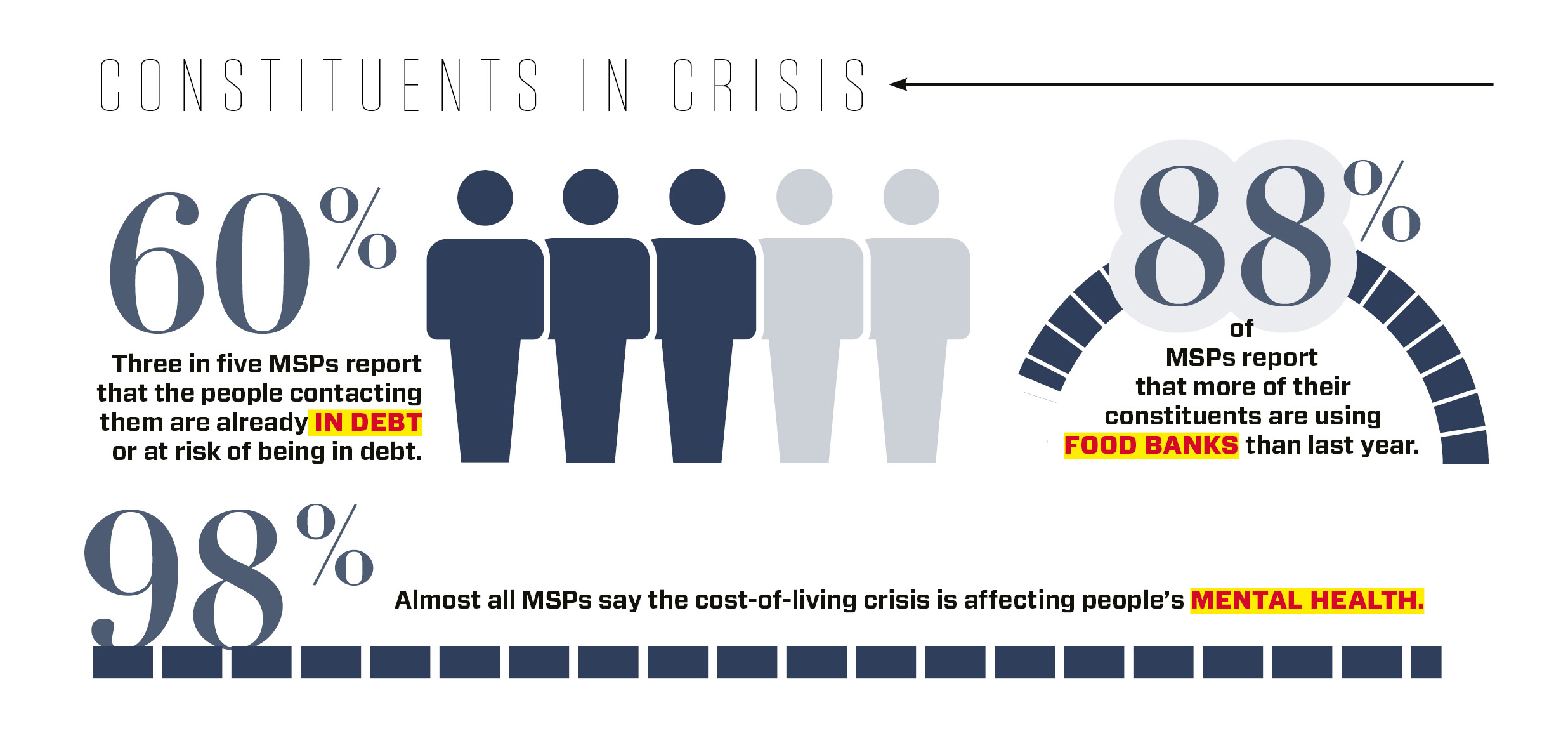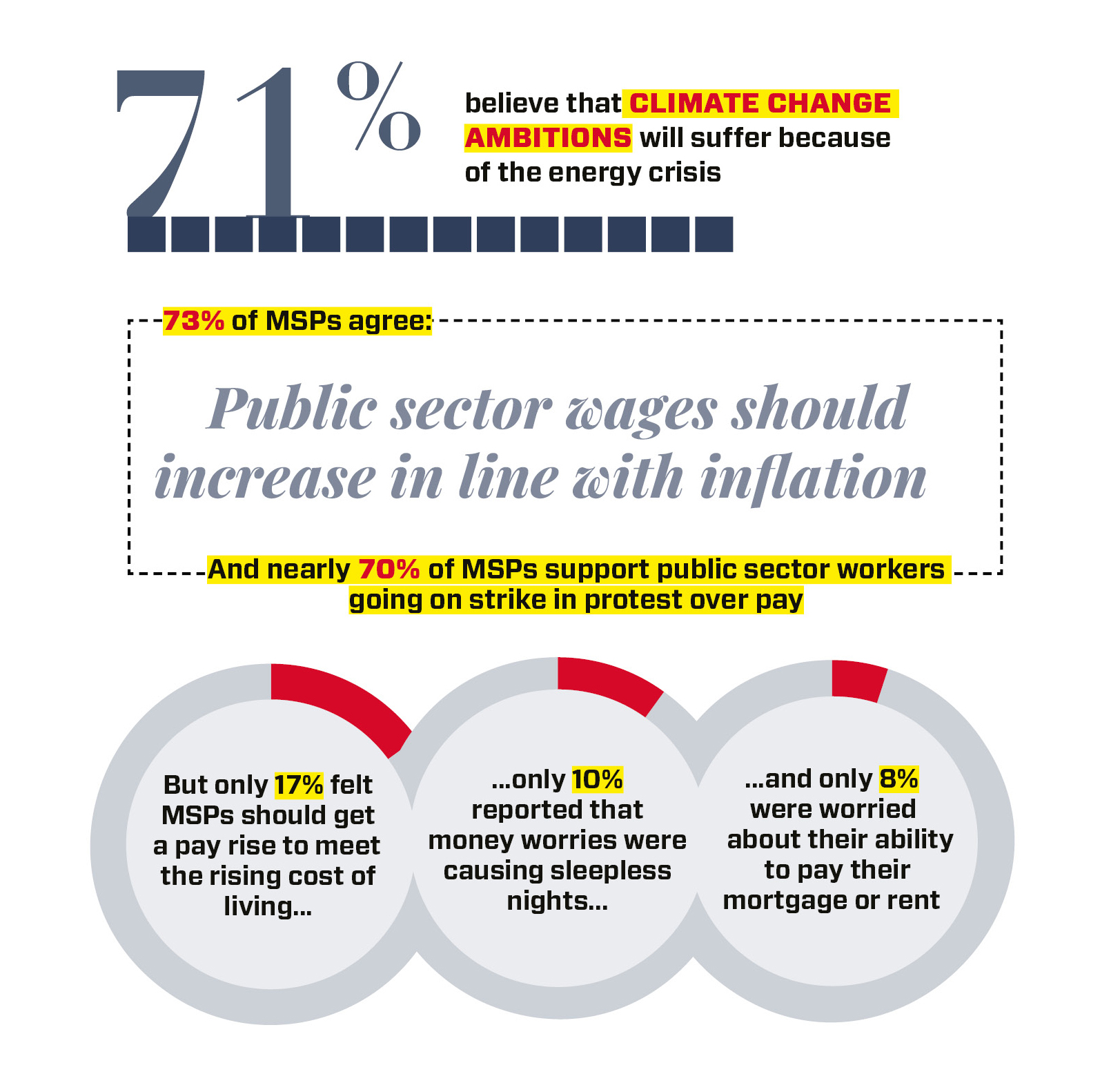Cost-of-living crisis: MSPs inundated with requests for help
As temperatures fell across the country last week during the first cold snap of the winter, many people would have reluctantly turned on the heating knowing they will struggle to pay the bill. For others, the choice is starker yet: pay for heat or pay for something to eat.
That the cost-of-living crisis is first and foremost in all our minds is undeniable amid crippling inflation and unprecedented pressures on household budgets in the run-up to Christmas.
And polling carried out by Holyrood shows the issue is also increasingly featuring in the day-to-day business of our MSPs. Our exclusive survey, which was responded to by around a third of parliamentarians, found that 84 per cent have seen an increase in their caseload associated with the cost of living. And almost all the respondents (95 per cent) expect the proportion of that caseload to increase significantly over the next 12 months.

Research published earlier this year by the University of York found that more than 70 per cent of Scottish households are likely to be in fuel poverty – meaning they spend more than 10 per cent of their income on heating – by the start of next year. While the figures were published before help announced by the UK Government in September, it’s expected the average annual household bill will rise to £3,000 in April, meaning things are likely to get worse before they get better for millions of families.
Our survey found that around a third (32 per cent) of MSPs’ current caseload relates to the cost-of-living crisis, with 88 per cent reporting that more of their constituents are using foodbanks compared with last year. Additionally, 60 per cent of those surveyed said that most people that contacted them were already in debt, or at risk of being in debt.
Derek Mitchell, chief executive of Citizens Advice Scotland, said: “It is interesting to see the levels of concern here. MSPs of course deal directly with their constituents every day so, like the CAB network, constantly see real-life examples of how families are struggling and what kind of help they need.
“We talk to MSPs regularly about these issues and will continue to urge them to act in ways that will help people with these very high costs. In the meantime, CAS has recently launched our Big Energy Saving Winter campaign, which aims to give people information and support on how they can cut their energy costs and get through the harsh winter.”

The latest figures from the Office for National Statistics (ONS) show that inflation fell slightly in November, down from October’s four-decade high. It’s hoped there will now be a period of easing which will help families struggling to recover financially from the cost of Christmas.
While the majority of MSPs taking part in our survey were not worried about their own finances, one in 10 said money issues were causing them sleepless nights. Eight-five per cent reported putting the heating on less often at home. Most MSPs earn £66,662 a year, although ministers and cabinet secretaries are paid more. On the issue of whether they should get a pay rise, only 17 per cent of MSPs said they should. More than half (57 per cent) “strongly / somewhat” disagreed that MSPs should get a pay rise to meet the rising cost of living, with 27 per cent neither agreeing nor disagreeing.
And while nearly three-quarters of those polled agreed that public sector wages should rise in line with inflation, 40 per cent of politicians strongly or somewhat agreed with the statement that they feel “helpless in the face of the scale of the problem” surrounding the cost-of-living crisis in general.
More than 70 per cent strongly / somewhat agreed that climate change ambitions will suffer as a result of the ongoing energy crisis.

Chris Birt, associate director at the Joseph Rowntree Foundation, said: “This is already proving to be a very difficult winter for many families, and we know that more and more people are having to go without essentials or get into unmanageable debt to try and keep their heads above water. It’s no surprise but it is stark to see how strongly this is being reflected in MSPs caseloads – and for every person who seeks support in this way there may be many more suffering in silence.
“All of our politicians need to recognise that the current situation is untenable for very many people and shake themselves out of any belief that they are helpless to intervene. More action is needed both from the Scottish and UK Governments to address the current crisis. Equally importantly, every MSP stood on a manifesto of meeting the statutory child poverty targets and they all have a role to play in doing so, ultimately that is the action that can prevent such a crisis in the future.”
Holyrood Newsletters
Holyrood provides comprehensive coverage of Scottish politics, offering award-winning reporting and analysis: Subscribe